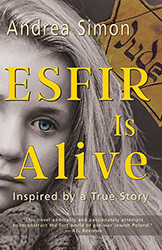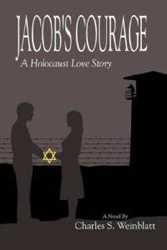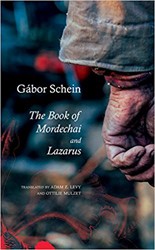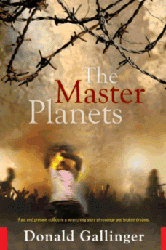Schultz’s free-verse novel portrays the descent of Henryk Stanislaw Wyrzkowski, whose position as “Head Clerk of Closed Files” in a 1960s San Francisco welfare office suits his backward-looking nature. Henryk is the novel’s narrator, guide to the often hellish scenes he describes from his mother’s life, his own life, and out of recent history.
Schultz makes wonderful use of his chosen form, breaking the narrative into six parts, each of which is comprised of sixteen sections. Various voices, tones, and types of language are at play throughout, including pieces of Henryk’s mother’s journal. This variety involves the reader in Henryk’s efforts to piece together a coherent life after all he has been, seen, and done.
Some of the saddest and most beautiful passages in the book describe Henryk’s deep regret and grief over shooting and killing his friend as a child. Henryk considers the dead boy’s father, a Holocaust survivor:
At night he prayed to die
but never once did he hate his life.
His mind and flesh they took
but what most they wanted,
his will to live, that he hid.
But I found it.
Killing his son, I did
what even the Nazis couldn’t.
Henryk, though not Jewish, was a child during the Holocaust. He has been deeply and tragically affected by his mother’s work to save their Jewish neighbors, by his vague memories of life in Poland during the Holocaust, and by the murder of his friend and its echoes of Holocaust crimes. Henryk’s connection to the Holocaust might at first glance be considered slight, but he is profoundly scarred. By show- ing us the Holocaust through the oblique angle of this character, Schultz brilliantly recontextu- alizes and rethinks a series of events that are often referred to as “unthinkable.”
At times the language in the novel seems imprecise, particularly in the book’s final sections. Those moments of imprecision are noticeable because Schultz is so obviously adept at description. For example, there are thoughtful and subtle lines about hell throughout the novel, so when Schultz writes of an experience being “utter hell,” it feels as if he has stopped paying attention.
Ultimately, however, such moments hardly matter against this novel’s achievements. A line in Henryk’s mother’s journal reads, “a sunny morning 1961 but always 1941.” This dark, deep book, full of emotion and motion, points forward, thinking in new ways about the Holocaust and its aftermath.
Lucy Biederman is an assistant professor of creative writing at Heidelberg University in Tiffin, Ohio. Her first book, The Walmart Book of the Dead, won the 2017 Vine Leaves Press Vignette Award.





